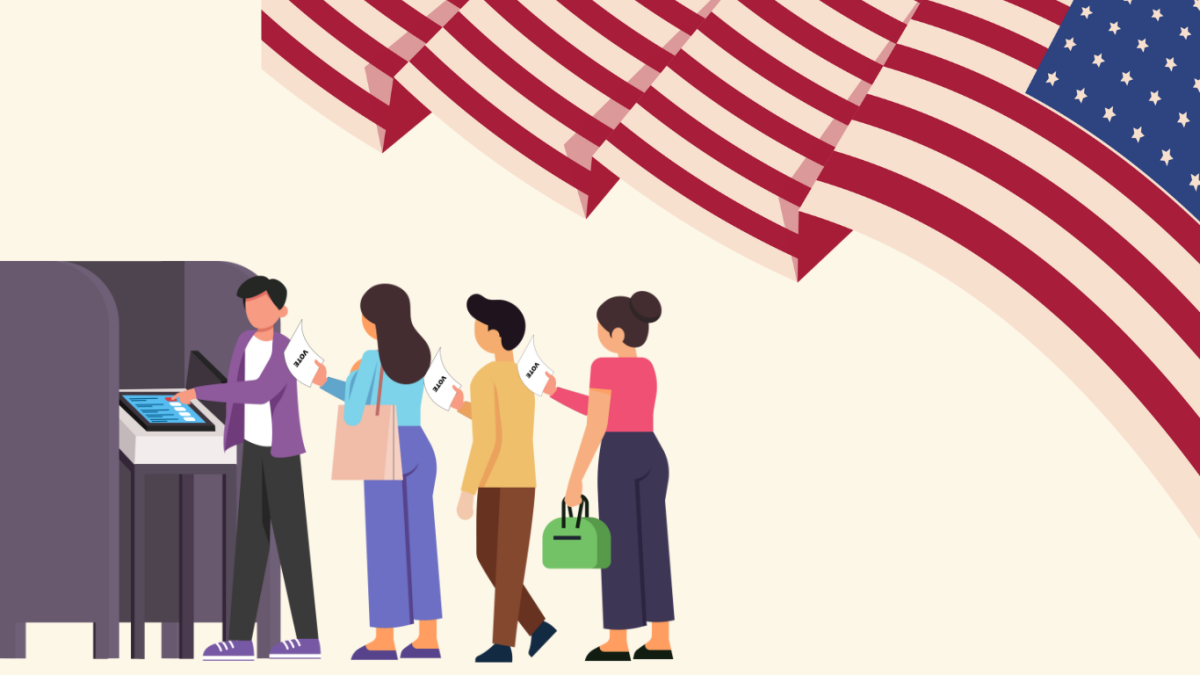With the 2024 presidential election coming up in less than a month, now is the most vital time for eligible voters to register. Choosing who to vote for between the five candidates can seem like a daunting task. Many students may be wondering why this is such an important responsibility or questioning if their opinion even matters when there are so many other voices out there. With a great deal of different viewpoints and false information spread around the country, knowing what to trust and who to vote for can seem impossible. Luckily, the supervisor of Carlisle Area School District’s middle school and high school social studies program, Mr. Wagner, was willing to talk with Periscope staff writer Bailey Clayville and shed some light on the situation for unsure and potential voters.
BC: What political issues should students consider when choosing who to vote for?
“Making sure that people are treated fairly seems to be an overarching idea that permeates amongst young people when they’re deciding who to vote for and what to vote for,” says Mr. Wagner. No matter what the topic is, our candidates tend to have very opposing views, and it’s important to note their stances on each one of them. However, there are certain issues that are currently talked about the most like abortion, gun laws, climate change, the economy, and immigration. Each topic has a different impact on different people and many won’t have the same opinions either, which is why it’s so important to research each of them.
BC: How should students conduct their research on the election?
There are so many different news sources out there and many vocal people sharing their insight, but rumors spread like wildfire, and it’s difficult to differentiate fact from fiction. Mr. Wagner has some recommendations to check out for all political views. The League of Women Voters, a nonpartisan organization, is a great place to start. They share information on the elections and every year they send out questionnaires to the candidates. His other suggestion is PA Youth Vote, which is a site geared towards Generation Z voters, 18- to 25-year-olds, and the political issues that they care the most about. Links to both websites will be shown at the bottom of the page, and keep looking for more Periscope articles about the election!
BC: How does being a Pennsylvania citizen affect how to vote?
Pennsylvania is one of the seven swing states, meaning that it has leaned both democratic and republican in past elections, while other states have consistently been one of the two. Candidates tend to focus on these swing states, trying to gain as much attention from them as possible because they could go either way when it comes time to vote. This makes Pennsylvania so significant because we are essentially the tie-breakers. We are also a state most affected by fracking, a frequently discussed topic in debates. Both candidates have strong views of this and it’s important that we pay attention to this issue because of how it impacts our state specifically.
BC: What is the Governor’s Civic Engagement Award?
This is an award given to the schools who surpass a certain number of registered students. The gold level is 85% or above of eligible students registered and the silver level is 65% to 84%. The program has been running for eight years, and Carlisle High School has won each time. A golden level seven times, and a silver level once during the year of COVID-19. Moreover, it is the largest public school in Pennsylvania to win the award, given that lots of winners are smaller schools that can get to those percentages more easily.
BC: Why do Generation Z votes matter so much?
“There are approximately 4 million 18- to 25-year olds who are eligible to vote in this presidential election, and if we could get that age group to register, and all show up and vote, they would actually outnumber the 65 and over group, and usually that has the highest voter turn out, and so it’s neat that young people are now in a position that they can override the older generation when they show up to the polls.” If this generation can reach that goal, it’s powerful to know the kind of effect that could have on the election. The issue is that registering often doesn’t translate to showing up at the polls and voting. He points this out as well, stating “In the 2020 election, only 30% showed up to actually vote, but their voter registration was over 50% of the population.” While registering is important, that’s only because it’s what allows a person to vote. The next step you take is the one that really matters.
BC: Why should anyone bother if they’re only one vote?
Well, Mr. Wagner says, “I like to use examples in history to prove that’s not necessarily true. One vote made Texas a state. One vote gave us the 19th amendment, and women the right to vote. One vote put Hitler in power.” You may think that one person going to the polls won’t count for anything, but that one vote could be the winning vote. That one vote will contribute to a greater cause no matter who wins. That one vote says that every voter in this country has a voice and is prepared to use it. A vote isn’t just for a candidate, or for America, it’s for you.
If you’re interested in registering, check out the link below or visit any of your social studies teachers, they’ll have the forms.
Voter Registration: Voter Registration Application (pa.gov)
The League of Women Voters: Home | League of Women Voters (lwv.org)
PA Youth Vote: PA Youth Vote






























































































